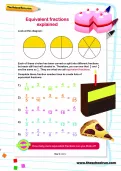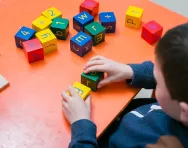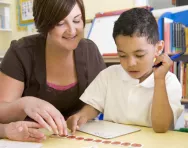Important update from TheSchoolRun
For the past 13 years, TheSchoolRun has been run by a small team of mums working from home, dedicated to providing quality educational resources to primary school parents. Unfortunately, rising supplier costs and falling revenue have made it impossible for us to continue operating, and we’ve had to make the difficult decision to close. The good news: We’ve arranged for another educational provider to take over many of our resources. These will be hosted on a new portal, where the content will be updated and expanded to support your child’s learning.
What this means for subscribers:
- Your subscription is still active, and for now, you can keep using the website as normal — just log in with your usual details to access all our articles and resources*.
- In a few months, all resources will move to the new portal. You’ll continue to have access there until your subscription ends. We’ll send you full details nearer the time.
- As a thank you for your support, we’ll also be sending you 16 primary school eBooks (worth £108.84) to download and keep.
A few changes to be aware of:
- The Learning Journey weekly email has ended, but your child’s plan will still be updated on your dashboard each Monday. Just log in to see the recommended worksheets.
- The 11+ weekly emails have now ended. We sent you all the remaining emails in the series at the end of March — please check your inbox (and spam folder) if you haven’t seen them. You can also follow the full programme here: 11+ Learning Journey.
If you have any questions, please contact us at [email protected]. Thank you for being part of our journey it’s been a privilege to support your family’s learning.
*If you need to reset your password, it will still work as usual. Please check your spam folder if the reset email doesn’t appear in your inbox.
Does my child have ADHD?

Attention Deficit Hyperactive Disorder, otherwise known as ADHD, is a complicated condition. It’s hard to identify the cause and can be difficult to diagnose.


Start a unique learning programme!
- Weekly programme for each school year
- Worksheets sent direct to your inbox
- Keeps your child's learning on track
Symptoms include restlessness, poor concentration and impulsive behaviour which can involve interrupting conversation, speaking out of turn or doing something physically dangerous. Children with ADHD often suffer from other conditions, such as dyslexia, depression and a range of other learning difficulties, too.
ADHD – who’s affected?
It’s estimated that between 5% and 10% of children suffer from ADHD.
Boys are more likely to be diagnosed than girls. This doesn’t mean that they’re more likely to suffer, instead it may mean that their behaviour is easier to diagnose. Girls who suffer from ADHD may be more quietly distracted, rather than boisterous.
If there is a history of ADHD in the family, there’s a greater likelihood your child could suffer from the condition. Other causes can include exposure to toxins during pregnancy, food additives and brain anatomy. It can be difficult to specify an exact cause for ADHD and research is still being carried out to find out more.
Getting diagnosed
Diagnosis usually takes place between the ages of three and seven. ADHD is not a straightforward condition to diagnose and specialists have to take into account a wide range of factors when assessing your child. For a diagnosis to take place your child will need to have been suffering from ADHD symptoms for at least six months. They will also have to display symptoms in more than one setting, for example home and school.
If you’re concerned about your child’s behaviour, it may be worth assessing their lifestyle. Ensure they have a routine in their day with a regular bedtime and are getting enough sleep at night. Make sure they’re getting enough physical exercise and aren’t spending too much time in front of a television, computer or games console. Evidence has shown that children’s behaviour can be affected by food additives, too, so try to make sure they’re eating a balanced diet and are not consuming too many foods and drinks with artificial additives in them. Children with ADHD will still display symptoms even when adjustments to their lifestyle are made.
If you suspect your child is suffering from the condition then take them to your GP. If your GP agrees with you then they will refer your child to a specialist. It’s important to seek medical help if you’re worried, the sooner the diagnosis is made, the more support can be provided for your child.








